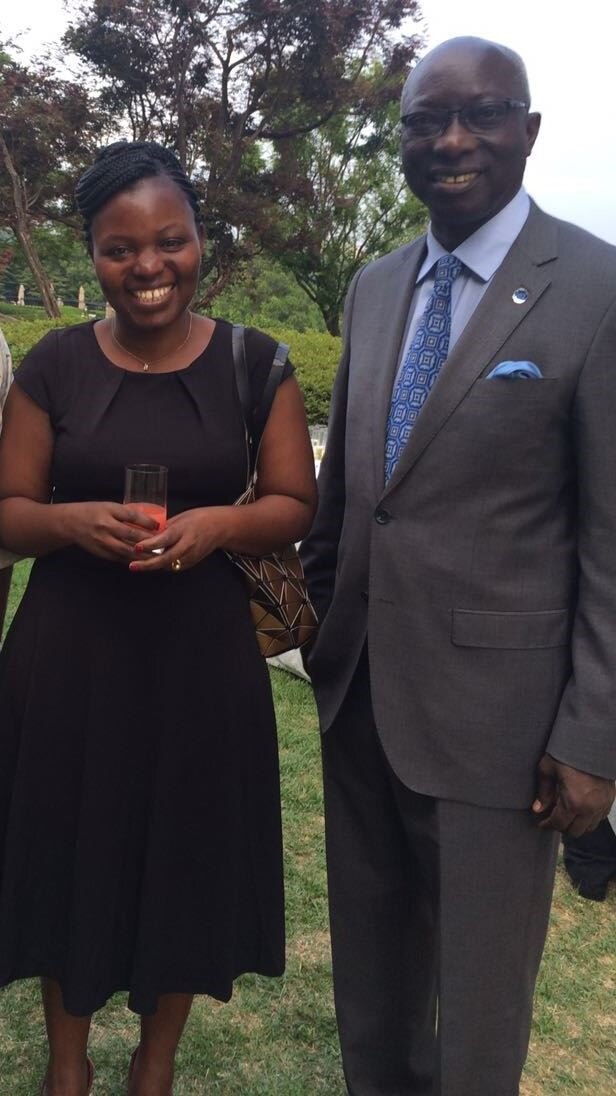After passing my high school exams with flying colors, I received an admission in a University located in a faraway region. In the farewell communion just before leaving the village, my aunty told me with a firm voice, “nikupate ati unachekacheka na wavulana wa xxx… Usijaribu kutuletea mmoja. Ukitaka kuolewa kuna makabila mengine mengi nchini Kenya..” (I should not find you laughing sheepishly with boys from tribe xxxx.. don’t try to bring one here. If you are ready for marriage, there are many other tribes in Kenya). This may sound, as it did to me, as innocent piece of advice to a teenage girl going to live away from home. But is it?
Years later in 2014, the United Nations Secretary-General’s Special Adviser on Prevention of Genocide made a statement that should be given more attention… “Not a single country is immune to the risk of genocide.” You may find this a heavy discussion if you are in a country where few identity-based deaths, if any, have occurred. This article may help you understand how subtle the journey towards genocide begins and how difficult it may be to pull out if you do not look out in good time. As mentioned, my aunty perceived tribe xxxx as not deserving of marriage from my community. They make lesser husbands.
Defrocking ‘the other’ of humanity is an act meant to deface one’s ‘enemy’ before striking. Why deface? Probably because, like Jean-Jacques Rousseau (1761) argued, human beings are inherently good. So, to justify to ourselves that what we are doing is not bad, one has to tear humanity away from his victim.
The Genocide Watch identifies dehumanization as one of the 10 stages forming the process of genocide (Stanton, 2019). The other stages include:
• Classification where us vs them is created;
• Symbolization where symbols and names are attached to the classified groups;
• Discrimination in which the law, custom or political power is used to deny rights;
• Dehumanization where a group denies another its humanity;
• Organization where a group or state systematically plans;
• Polarization where extremist ideas are used to further divide the groups;
• Preparation where leaders plan;
• Persecution where victims are identified and separated on the basis of a characteristics like ethnicity, religion etc.
• Extermination where annihilation of victims begins particularly because they are not believed to be human enough
• Denial where perpetrators argue that crimes never occurred and even try to cover them up.
Conflict already strains the relationship of conflicting communities compounding the mistrust, fear and even anger. However, such disintegration is worsened by creation of an enemy image which is usually a negative stereotype that makes one group view the other as worse than itself. On the overall, the battle between the groups is framed as one between good and evil, where the aggressor perceives himself as good and the victim as evil. Such perceptions are orally passed on from generation to generation, intentionally or otherwise.
In a women’s meeting in the North of Kenya where cattle rustling is rampant, a pastoralist woman narrated that when a child cries incessantly at night, it is told to be quiet or it will be taken outside to face the raider from the ‘neighboring community.’ The child is forced into silence since this neighbor has been painted as a monster who ‘eats’ children. This may sound as another subtle act that means no harm…
The magnitude of this may however be differently appreciated when we consider the Prosecutor v. Ferdinand Nahimana, Jean-Bosco Barayagwiza and Hassan Ngeze Case No. ICTR-99-52-T in the International Criminal Tribunal for Rwanda. As the owner and editor in chief of Kangura, Ngeze published the 10 Hutu Commandments in an article entitled ‘Appeal to the Conscience of the Hutu’ in December 1990. These commandments forbade a Hutu from marrying, courting or employing a Tutsi woman as secretary or protegee; painted all Tutsi as dishonest and Hutus who partner with them in business, borrow or loan them as traitors; limited key positions and Rwandan Army for Hutus only; and required Hutu ideology to be taught to Hutu of all ages. Hassan Ngeze was sentenced to life imprisonment after the Tribunal observed that he poisoned the minds of his readers thereby causing the death of thousands of innocent civilians.
What are those unwritten commandments in your community about ‘the other?’ It is time to start dispelling the negative images and stereotypes of the groups we perceive as enemies. This is because, the stereotype and image you consider subtle today may suddenly morph into a commandment of death.
When in a discussion with Adama Dieng in the 2016, he insisted that “Genocide must and can be prevented if we are willing to learn from Rwanda, and Srebrenica.” May we all learn that every negative picture we paint of the other strips humanity off them and could just turn into the altar upon which we sacrifice the lives of all the ‘other.’ Indeed, let us beware of the commandments of death clothed in subtle pieces of advice to our children, friends and loved ones.
By Sellah Nasimiyu King’oro @SellahKingoro

